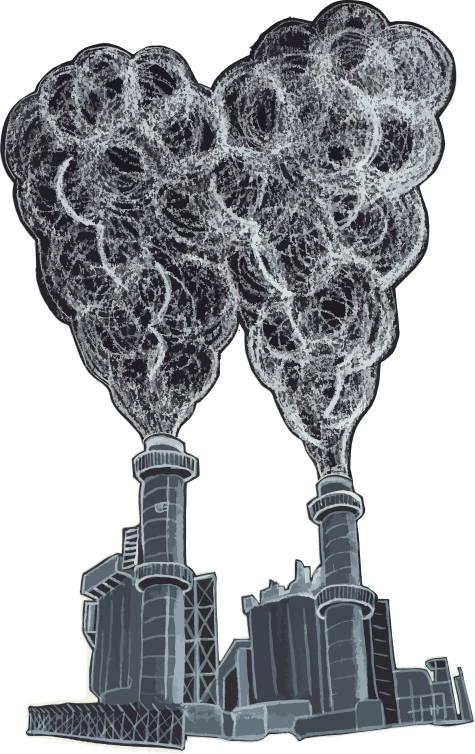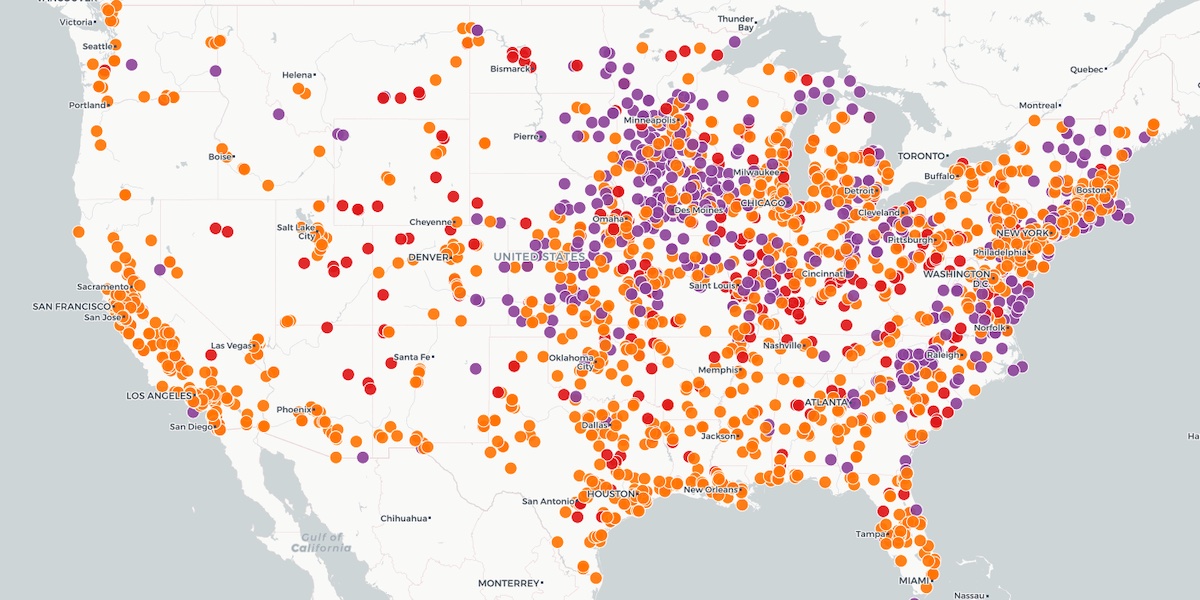South Dakota
Back to mapTo get to zero by 2050, South Dakota must cut emissions by 3.7% a year
Emissions in South Dakota
Million metric tons of carbon dioxide (CO2) [?] equivalent (MTCO2e [?]) emissions
Note: Grey area indicates missing data due to processing delays.
Source: WRI, Mar 2021
This is how we're going to do it
- Boilers and furnaces with heat pumps [?]
- Gas stoves with electric induction stoves [?]
- No-till farming to keep CO2 in the soil
- Capturing methane leaks from landfills
- Capturing CO2 to make emissions-free concrete
- Burning green hydrogen to make emissions-free steel
- Plugging methane leaks from gas pipelines
Decarbonize Our Buildings
5% of South Dakota's climate pollution comes from buildings.
We burn fossil fuels to heat our air, water, and food.
To cut this pollution...
Let's electrify our heat!
We'll replace...
...in all of South Dakota's 661,000 buildings.
In fact, 37% of appliances in buildings in South Dakota are already fossil fuel free!
That means we only need to electrify the remaining 418,000 dirty buildings in South Dakota. That's around 15,000 per year.
Source: Microsoft, Mar 2021; NREL, Dec 2021Electrifying all buildings cuts 5% of the pollution.
Decarbonize Our Transport
16% of South Dakota's pollution comes from cars, trucks, trains, and planes.
But mostly from cars.
To cut this pollution,
your next car must be electric.
Or consider going car-free with public transit, bikes/e-bikes, car share, or other alternatives!
There are 325,000 vehicles in South Dakota and 410 are already electric (0.1% of the total).
We need to electrify (or replace) the remaining 325,000 gas-powered vehicles. That's around 12,000 a year.
Source: DOT, Feb 2021Electrifying all transportation cuts 16% of the pollution.
Decarbonize Our Power
7% of South Dakota's pollution comes from burning coal, gas, and oil to make power.

To cut this pollution...
Put solar panels on your roof!
Then, we'll replace all fossil fuel power plants with solar and wind farms.

...and find good jobs for those workers.
Current Fossil Fuel Power Plants in South Dakota
1 coal plant
Big Stone
Grant County
451 MW
9 gas plants
Angus Anson
Minnehaha County
406 MW
Deer Creek Station
Brookings County
324 MW
Groton Generating Station
Brown County
189 MW
Ben French
Pennington County
135 MW
Aberdeen Generating Station
Brown County
111 MW
Huron
Beadle County
58 MW
Lange
Pennington County
40 MW
Yankton
Yankton County
13 MW
POET Biorefining - Hudson
Lincoln County
4 MW
9 oil plants
Spirit Mound
Clay County
135 MW
Watertown Power Plant
Codington County
68 MW
Lake Preston
Kingsbury County
48 MW
Ft. Pierre
Stanley County
6 MW
Valley Queen Cheese
Grant County
5 MW
Mobile Unit
Beadle County
4 MW
Clark (SD)
Clark County
3 MW
Faulkton
Faulk County
3 MW
State Auto Insurance
Grant County
2 MW
But wait!
It's not enough to replace our power plants with wind and solar farms.
To power our electric cars and buildings, we need two times the electricity we have today.
In all, we'll need to build 1,000 megawatt (MW) [?] of wind power and 813 MW of solar power.
Since the average wind turbine provides 2.75 MW of peak capacity, South Dakota would need to install about 364 turbines.
Since South Dakota already has 1,000 MW of wind and 0 MW of solar, that's -64 MW of wind power we need to build and 813 MW of solar power. That's around 0 MW of wind power and 30 MW of solar power a year.
Source: EIA, Apr 2022Decarbonizing all dirty power cuts 7% of the pollution.
And gives us zero-emissions power we need to eliminate pollution from buildings and cars!
Other Emissions
The last 72% of South Dakota's climate pollution comes from other sources...
This includes farming, landfills, industry, and leaks from gas pipelines.
There's no one solution to solve these problems, but there are lots of great ideas:
That doesn't mean there's no solution, it just means that clean electrification [?] doesn't help with these problems, and you could fill a whole book with covering all of them. We need to encourage our politicians to invest in researching new solutions and implementing existing solutions to these problems!
Ready to do your part?
Learn how to electrify your own machines and pass local policy to electrify the rest
Take Action